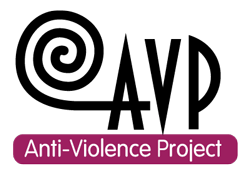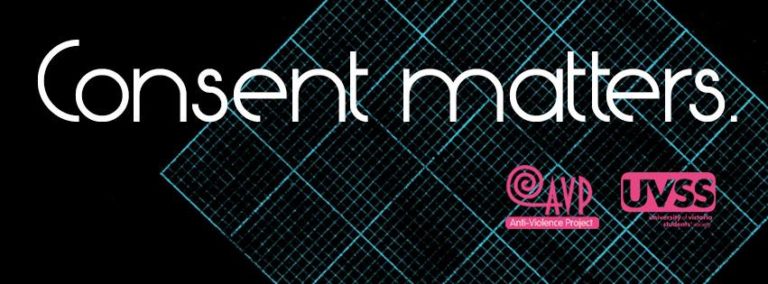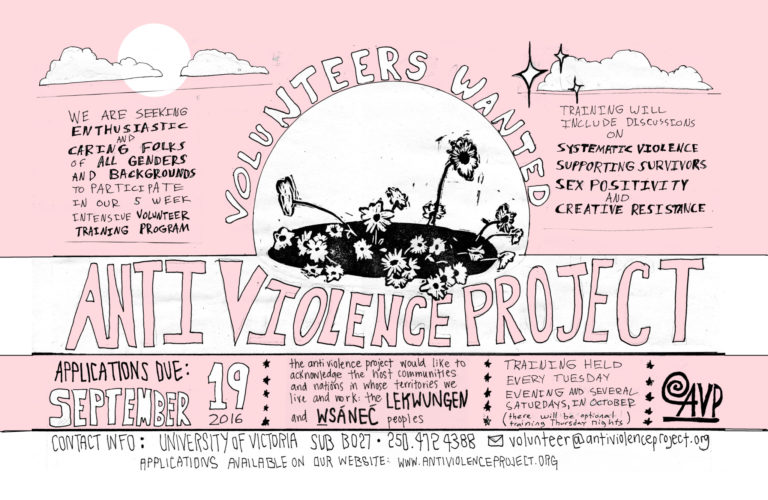Setting Boundaries in Community Organizing

The Anti-Violence Project is an organization that deeply values transparency. As such we feel it is important to disclose the limited capacity of our organization at this time. The reality of limited capacity means we have to establish boundaries and say no (even when we want to say yes!). This looks like not being able to participate in organizing annual events with other community advocacy groups, having to waitlist students and community members for consent workshops, and/or slower response time to emails. It should also be mentioned that our coordinator, Carol, will not be doing personal support sessions at this time. AVP has amazing support volunteers that are available as a resource by email or during drop-in hours, so please feel free to get in contact with our volunteers in whatever way feels good for you.
So why is our capacity limited? This year has seen an increase in reported sexual assaults within our academic community. Supporting and holding space for survivors of sexualized violence is a key priority in our work, which means more of our resources go towards supporting these folks. This has also led to supporting more people who have caused harm (we recognize the people are not disposable, and work to create change in our communities).
Conversations around rape culture have also become more prevalent in the media, creating an increasing interest in learning about the systems of oppression that create rape culture. AVP has been engaging in these conversations with increased consent workshops, (over 20 workshops facilitated so far this academic year) and with the second annual Sexualized Violence Awareness Week at UVic. These conversations are continuing in spaces such as the UVic Men’s circle (where men and masculine-identified folks can discuss/challenge dominant constructs of masculinities and gender-based violence). Over the summer, AVP also developed and hosted a conference to train other universities on the consent workshop model. The intention was to expand a network of care to other universities and develop tools for creating these conversations on campuses beyond our own. AVP has been a driver for initiatives that deviate from the standard methods of many sexual assault centres, focusing on preventing sexualized violence and developing processes of restorative justice for people who have caused harm.
Another factor that should be named is that the movement against sexualized violence is often survivor-led. For this work to continue, self-care needs to be a focus. This takes many different forms, but it does consistently require intact boundaries, and recognition of being over-extended, to avoid burnout. This can also be an anti-capitalist endeavor as it subverts the traditional productivity model by acknowledging that inwardly focused self and community care are as important as the other work that we do.
The work we do is rooted in the acknowledgment of the Lekwungen and WSÁNEĆ territories where AVP, the university, and the community exist, and the knowledge that these lands were taken without consent. This understanding is necessary for understanding rape culture. Our work is done out of a desire to be aware of the colonial roots of this violence and to support this community. While this year our capacity has been limited, it is because increased awareness generates increased need. Our lower capacity means that folks may be waitlisted for workshops, AVP may not be present at all community events, and email responses may be delayed. We are taking care of ourselves and finding ways to engage in this work in powerful and sustainable ways. Ultimately what we are working towards is a community in which this work is not necessary, a community in which a sexual assault center doesn’t need to exist.
Written by: Charity Justrabo






